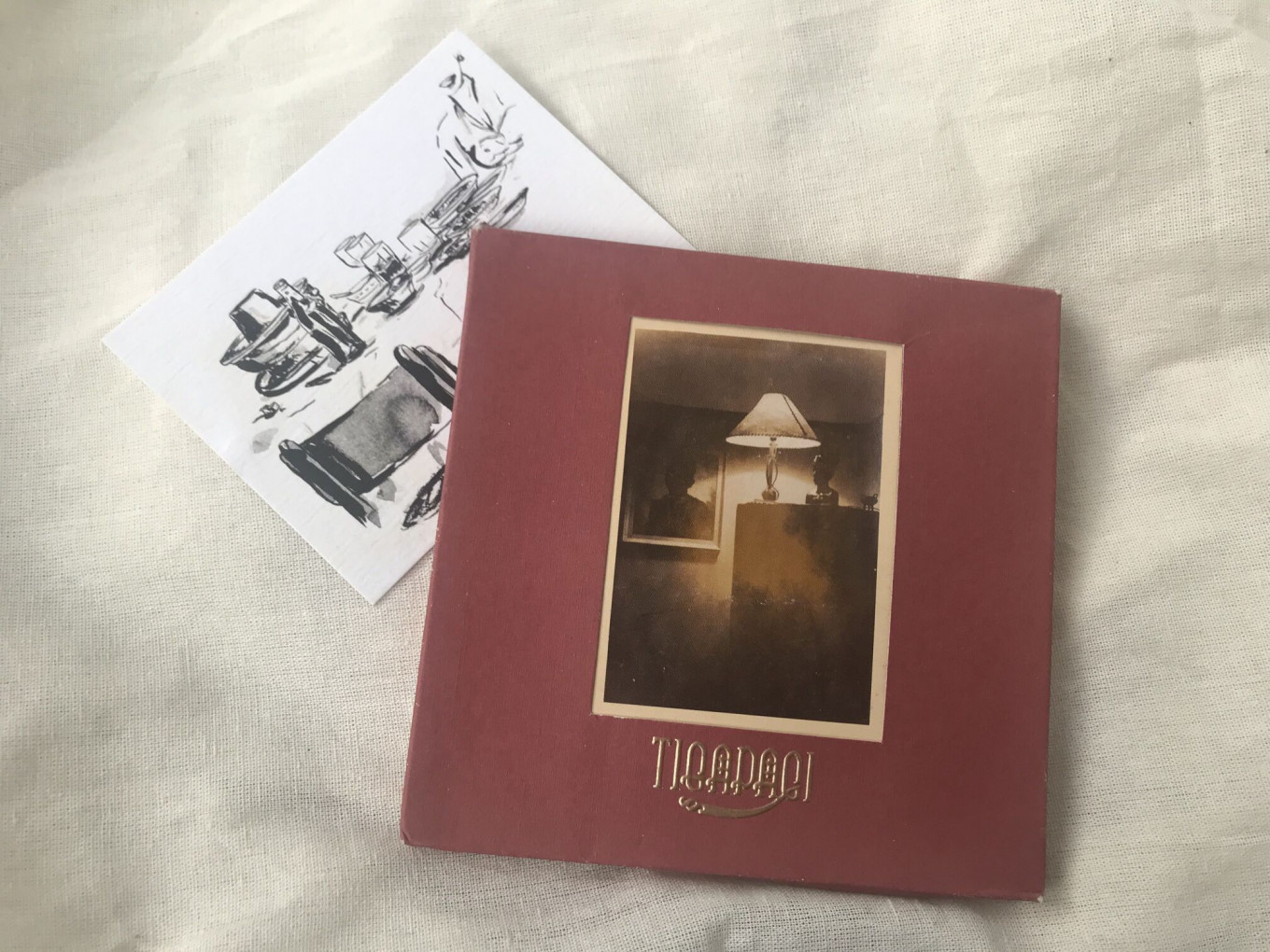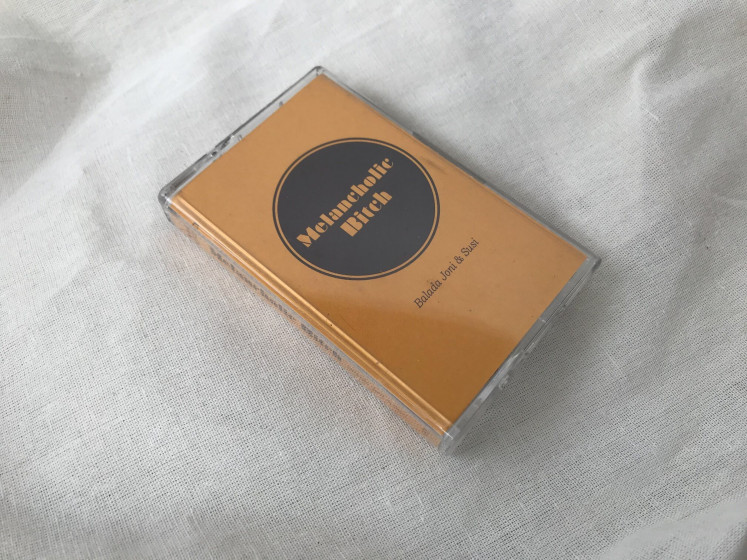Popular Reads
Top Results
Can't find what you're looking for?
View all search resultsPopular Reads
Top Results
Can't find what you're looking for?
View all search resultsMusical storytelling: Indonesia’s best narrative-driven albums
Sometimes, an album is more than just a compilation of songs; it becomes a vehicle to convey a larger idea.
Change text size
Gift Premium Articles
to Anyone

Sometimes, an album is more than just a compilation of songs; it becomes a vehicle to convey a larger idea.
In many such albums, bands or musicians push the envelope of their craft, creating a work with a central narrative, building upon its world with sonic and lyrical explorations. The listener is immersed in the vision of the band or musician.
The following are some of Indonesia’s strongest narrative albums and are well worth a listen.
Balada Joni dan Susi by Melancholic Bitch (Dialectic Records/Demajors, 2009)
[gal:3]
The elusive masters of poetry, Melancholic Bitch crafted a heart-wrenching story of a young couple on the run in Balada Joni dan Susi (The Ballad of Joni and Susi). The album opens by introducing its central characters, 21-year-old Joni and 19-year-old Susi, who run away together in pursuit of their own bliss. They go on an imaginary honeymoon, taking a trip through the canals of Venice. Joni and Susi vow to stay together forever, in sickness or in health, in the ecstasy of young love. For them, any dwelling they share can be a palace. When they’re hungry, their imagination can feed them. Nearing the end of the album’s first half, vocalist Ugoran Prasad asks repeatedly, “Who needs imagination when we have television?”
Things take a dark turn when Susi catches a fever in the first week of their life on the streets. Perturbed and penniless, Joni starts hearing the walls whisper to him, telling him to steal food for Susi. A desperate Joni finds himself in a supermarket. A stolen apple falls from his pocket and he experiences a barrage of public judgement. Joni then appears on TV, as the press arrives faster than the ambulance. Joni, now separated from Susi, can only imagine their shared future, a future where they have lots of children and grow an apple orchard “like God”, a future where they build a tall tower far away from everything and everyone. Their getaway ends.
Roekmana’s Repertoire by Tigapagi (Helat Tubruk/Demajors, 2013)

Set in the tumultuous year of 1965, Roekmana’s Repertoire explores the corners of the mind of Roekmana, a guitar teacher who serves as an inspiration for Sigit Agung Pramudita, Eko Sakti Oktavianto and Prima Dian Febrianto. Like a long story, the 14 songs of Roekmana’s Repertoire are contained within one continuous track, meant to be listened to all the way through. The tumult of the era permeates the album’s design through repeated motifs. Sketches of Roekmana’s life are plastered on the album’s paraphernalia, while blood splatters adorn the CD and its booklet.
Throughout its 65-minute runtime, listeners are brought to face Roekmana’s losses, inner struggles and ultimately his coming to terms with mortality. Sonically, the album combines Western diatonic scales with the Sundanese pentatonic scale. The sound sometimes clashes with its lyrical narrative, with brighter sounding songs belying dark lyrics. From losing a child, reminiscing about a lover and losing things dear and familiar to him to contemplating the inevitability of death, Roekmana maintains grace and depth. Even a birthday becomes nothing more than a reminder that death is coming closer. In the third track from the last, “The Way”, the lyrics go, “Life is not a circle, but life is just a simple line.” Yet as the album reaches its end with Roekmana accepting his coming death, it closes with the intro to its first track, “Alang-Alang”, creating a full circle moment that begins the story anew.
Dosa, Kota, dan Kenangan (Moso’iki Records, 2015) by Silampukau
Silampukau is an unapologetically local band, with narratives and stories weaved from their beloved city of Surabaya. Their album, Dosa, Kota, dan Kenangan (Sins, the City and Memories) embraces parts of the city that often go unmentioned but seem even more real in Silampukau’s songs. Beyond the clean-cut cityscape of Surabaya’s skyline lie the untold stories of its people, warts and all.
The instrumentations are humble yet cinematic, painting vivid pictures of what life is like beyond the city’s vision of modernity. What often falls victim to this vision are the playgrounds and cheap entertainment venues for the city’s kids, as told in “Bola Raya” and “Bianglala”. Like Melancholic Bitch before them, Silampukau also examines the omnipresence of television and its hold on the audience in “Doa 1” (Prayer 1), vowing to one day appear on TV while questioning the realities of maintaining one’s artistry versus selling out. Through the haze of cheap booze, extortion by the authorities, the brand of love found in red light districts and the seemingly inevitable “modern city life”, Silampukau shines. Theirs is an ode to the city, embracing its underbelly as much as people may turn a blind eye to it.
Planetarium (Kolibri Rekords, 2019) by Jirapah

In their first official full-length release, Jirapah illustrates a seemingly lonesome journey through the contemplations of its narrator. Planetarium plays like an exploration of sparse spaces, an atmospheric trip through life and its preconditions. The story takes leaps and turns through time, space and memories.
Jirapah spared no details in their sonic exploration, with tracks going over 8 minutes and even 9 minutes. True to its title, the instrumentations seem “spacy” in a way, with walls of sound coming from multiple directions. Like sitting in an observatory, what we’re witnessing are the existential musings of the narrator, questioning the fragility of life in the cosmic scheme of things. Faced with an inevitable end and the certainty that we’ll never quite grasp what our life is meant to be, is what we do while we’re alive futile? Quite the contrary. According to front man Ken Jenie, this instead gives meaning to life, as in the short time we are given, we pursue what we believe in. What a journey.









